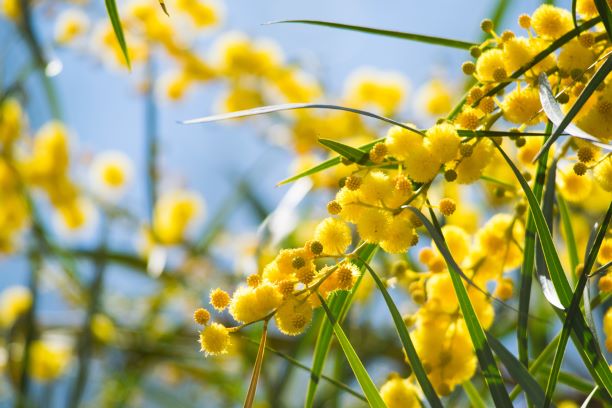
With pollen and allergy season in the air, University of Tasmania researchers are trying to uncover whether Australian native pollen types are important hay fever triggers for Tasmanians.
Participants are needed for the study which is being run by the AirRater team from the Menzies Institute for Medical Research, led by Associate Professor Fay Johnston and Dr Penny Jones.
Spring induced sneezing and wheezing affects thousands of Tasmanians, with hayfever affecting nearly one quarter of the Tasmanian population.
“In addition, for many of the 11% of Tasmanians with asthma, pollen can be an important trigger that makes their symptoms worse so managing hay fever is an important aspect of asthma care,” Dr Jones said.
“While we know some of the major ‘pollen culprits’ – for example, cypress pine, scots pine, birch and ryegrass – we don’t yet know enough about how native Australian pollen types might be contributing to the problem.”
The study involves taking blood from 50 Hobart hay fever sufferers, and using a novel immunological technique to test what they react to.
Allergy symptoms can then be recorded using ‘AirRater’, a free smartphone app designed to support asthma and allergy sufferers to better manage their symptoms and improve their quality of life.
“Unlike standard allergy tests, this technique doesn't require specific pollen extracts - so the research team will be able to test whether Hobart residents react to native pollen types” Dr Jones said.
“After capturing pollen onto filters for one year, the research team will use this method to test which, of all those pollen types in Hobart’s air, hay fever sufferers respond to.
“Ultimately, it is hoped this research will support better diagnosis and treatment of pollen allergies, reducing the impacts of ‘sneezing and wheezing’ on the Tasmanian community.”
The study, which is funded by the Tasmanian Community Fund, is a pilot the team hopes to follow up with a larger study in 2019.
Anyone interested in finding out more can contact the study team on Which.Pollen@utas.edu.au or 1800 322 102.
Published on: 03 Oct 2018 8:19am